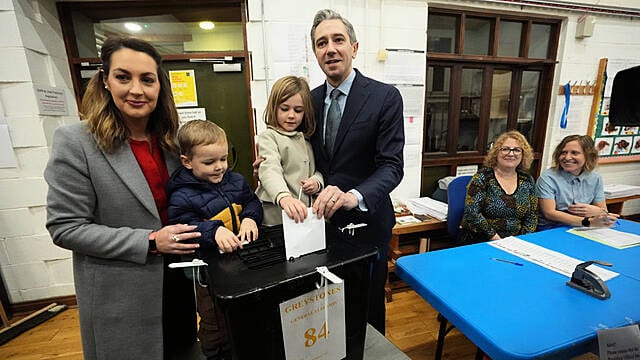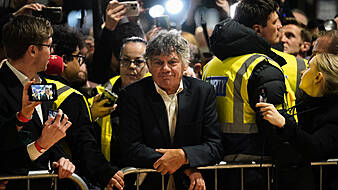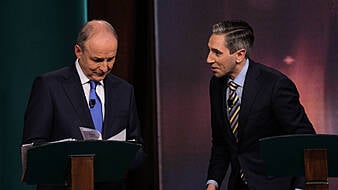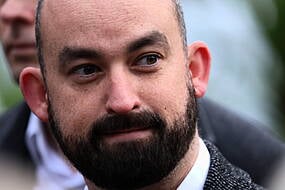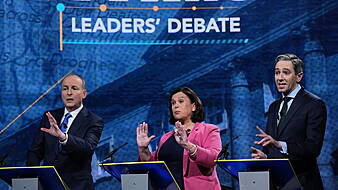Simon Harris has said he expects a “fascinating couple of days” after he cast his vote in the General Election minutes after polling stations opened.
The Taoiseach said that where transfer votes would go – a key part of Ireland’s proportional representation with a single transferrable vote system (PR-STV) – would decide the make-up and stability of the next government.
The Fine Gael leader arrived at the polling station at Delgany National School in Co Wicklow just before 7.30am with his wife Caoimhe and their children, Saoirse, five, and Cillian, three.
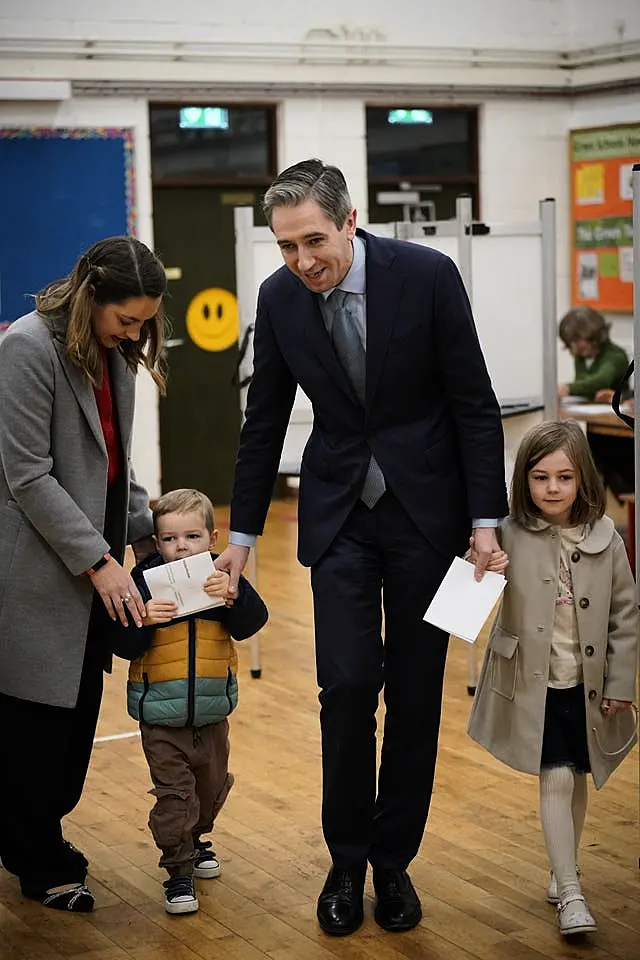
“I’m feeling really hopeful, hopeful in terms of the election, but hopeful for the future of our country,” he said.
“I wanted to vote early because I now want to head across our country today, continuing to encourage everyone to get out and have their say in this election.”
The three largest parties were virtually neck-and-neck heading into the vote, with one party leader describing the race as “too close to call”.

The latest poll, a Red C-Business Post survey, shows support for Fianna Fail unchanged at 21 per cent, only slightly ahead of its coalition partner, Fine Gael, which is down two percentage points at 20 per cent and now tied with the largest opposition party, Sinn Féin, which has gained two.
Asked whether he was glad the election campaign was over, he said he enjoyed the campaign and enjoyed making a pitch for his vision for the country’s future.
He said he would be working up until polls close and is expected to travel to counties Carlow, Laois, Monaghan and Tipperary as well as the Irish capital.

The polls opened at 7am and will close at 10pm, with a total of 174 seats in the Dáil to be filled – more than ever before.
More than three million registered voters will pick their representatives across 43 constituencies, in a campaign that has focused on the country’s housing crisis, the response to a dramatic increase in immigration, and economic management for the cost of living as well as potential future trade shocks.
After the 2020 general election delivered an inconclusive result, Fine Gael and Fianna Fáil, two parties forged from opposing sides of Ireland’s Civil War of the 1920s, agreed to set aside almost a century of animosity and share power.

Sinn Féin won the popular vote in 2020 but a failure to run enough candidates meant it did not secure sufficient seats in the Dail to give it a realistic chance of forming a government.
This time around, party leader Mary Lou McDonald fielded many more candidates in a vow not to repeat past mistakes, as she urged voters to elect a government of change without Fine Gael or Fianna Fail.
An exit poll at 10pm will provide the first sense of what Ireland’s next government may look like. The arithmetic to form a majority could prove tricky, though, with the country’s several smaller parties – and many independents – potentially jockeying for a place in government.
It will end a lacklustre three-week campaign that seemed to fail to ignite a surge of enthusiasm among the public, after the election was officially called by Taoiseach and Fine Gael leader Simon Harris on November 7.

That decision was ultimately his prerogative, and occurred while Fine Gael was enjoying a lift in the polls after he took over as leader from Leo Varadkar earlier this year.
It also came at a time when Sinn Féin was beset by a string of controversies in the preceding weeks – including former party members writing job references for a colleague who was later convicted of child sex crimes.
However, opinions polls suggest the parties’ fortunes have since shifted, with the opposition party making gains as Fine Gael suffered a slide.
One key flashpoint in the campaign arose out of Donald Trump’s presidential election victory in the US, which brought heightened concern around what his proposals for corporation tax and tariffs could mean for Ireland.

As such, the scale of Sinn Fein’s spending proposals have been dubbed as irresponsible by Fianna Fáil and Fine Gael, who have argued that Ireland needs to prepare for potential trade shocks with more prudent financial management.
However, the campaigning tactic has been derided as “project fear” and “desperate scaremongering” by critics.
At the same time, a Sinn Féin pledge to instigate an independent review into Irish national broadcaster RTE’s coverage of Gaza and other international conflicts was met with criticism by the party’s opponents, and the National Union of Journalists.
Mr Harris described the proposal as “chilling”, with others noting that several party figures, including Ms McDonald, have taken legal actions against journalists and media outlets.

Meanwhile, Fine Gael’s campaign has been plagued with several controversies which the Taoiseach has been unable to shake.
Mr Harris has repeatedly apologised for a much-criticised encounter in which he was accused of dismissing the concerns of a disability care worker at a supermarket, which had been filmed by RTÉ.
It later emerged that a member of the Fine Gael team contacted RTÉ about the interaction prior to publication. Ms McDonald took her opportunity to use Mr Harris’s own words against him, characterising the development as “chilling”.
The Fine Gael campaign has also been dogged by footage entering the public domain which showed a candidate engaged in a fight outside a pub.

John McGahon had been found not guilty in a criminal case around the incident, but was ordered to pay damages in a civil case.
Mr Harris notably did not canvass with the candidate in his high-profile tour of the country.
Elsewhere, an endorsement of a Fine Gael candidate from outspoken Ryanair boss Michael O’Leary was welcomed by senior party figures, albeit in a qualified nature after he suggested teachers should not run the country.
One former teacher in the campaign is Fianna Fáil leader Micheal Martin. Mr Martin’s party’s platform also faced criticism over its proposals to decriminalise cannabis for personal use.
It formed part of a wider row on handling the justice portfolio, which has come into sharp relief in the context of 2023’s Dublin riots and a perception that the capital is unsafe.

Some Fianna Fail figures have been accused of sexism over their criticisms of the Justice Minister Helen McEntee, Fine Gael’s deputy leader.
After the 2020 election, Fine Gael and Fianna Fáil relied on the Green Party as junior partner to secure the coalition’s majority.
Green leader Roderic O’Gorman has said it looks likely his Government partners will be returned to power, but cautioned they could seek an “easier life” over the next five years.
He said this could result in “right-wing independents” or “small populist parties” padding out the numbers.
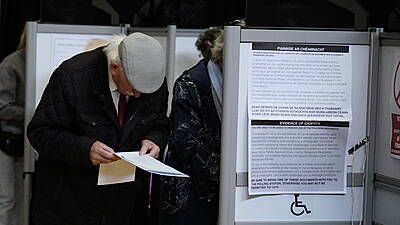
The final results will immediately kick-start government formation speculation – amid the possibility that more than three parties will be needed to get over the line.
The protracted process of counting ballots by hand will begin on Saturday.
As Ireland uses a system of proportional representation where candidates are ranked by preference, the voting slips need to be counted several times – an undertaking which can last for days.
